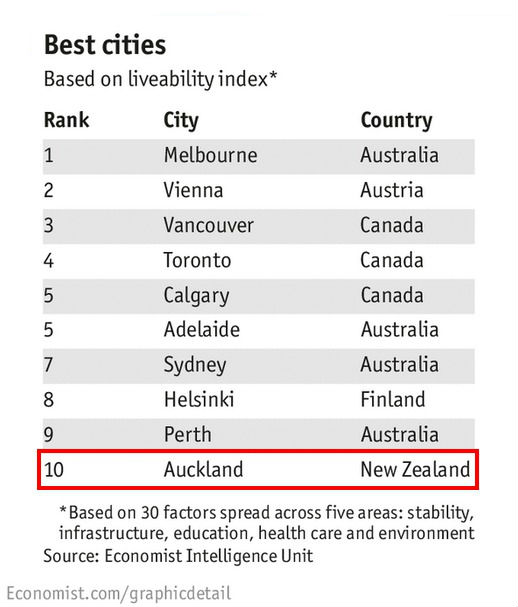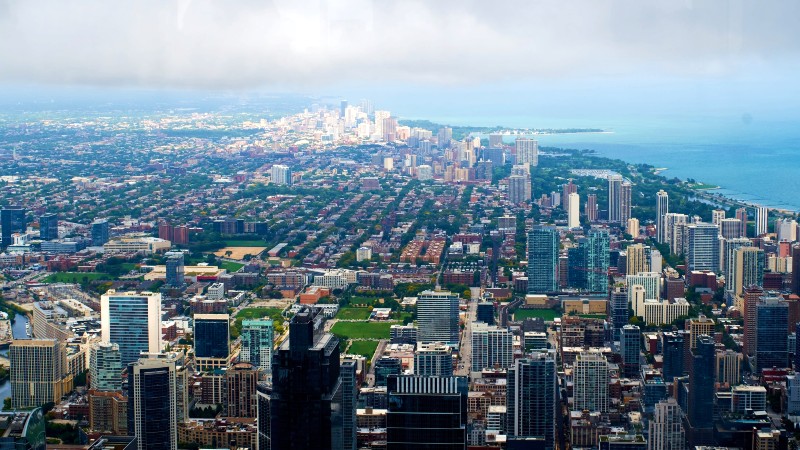
The respected Economist Intelligence Unit has again published its annual city Liveability Index
Auckland, New Zealand is ranked the worlds 10th most liveable city, with 8 of the top 10 cities being in Australia, Canada and New Zealand. Vienna, Austria (2nd) and Helsinki, Finland (8th) round out the top 10 cities. Melbourne, Australia is first again.
Auckland has set itself the worthy goal of being the world’s most liveable city, so while close in the Economist ranking, it has some work to do yet.
The EIU notes that the most liveable cities “tend to be mid-sized cities in wealthier countries with a relatively low population density.”
A summary of the Liveability Index is available for free download after registering with the EIU.
The Liveability score is made up of individual rankings from 0-100 grouped in 5 broad categories – Stability, Healthcare, Culture and Environment, Education, Infrastructure.
The Infrastructure Score is made up of the assessment of 7 factors:
- Quality of road network
- Quality of public transport
- Quality of international links
- Availability of good quality housing
- Quality of energy provision
- Quality of water provision
- Quality of telecommunications
Auckland’s infrastructure score, while not at the ideal 100 scored by Melbourne, Sydney, Perth, and Vienna are still a very respectable 92.9.
The current infrastructure development plans that Auckland Council has in place should help improve that ranking in time.
As highlighted in the EIU report, the quality of infrastructure is an important component in the liveability of cities and towns.
The continued application of infrastructure management techniques to optimise the delivery of services remains a critical function in ensuring the sustainability of city liveability.
PHOTO CREDIT: Auckland CBD by Karl Hipolito





